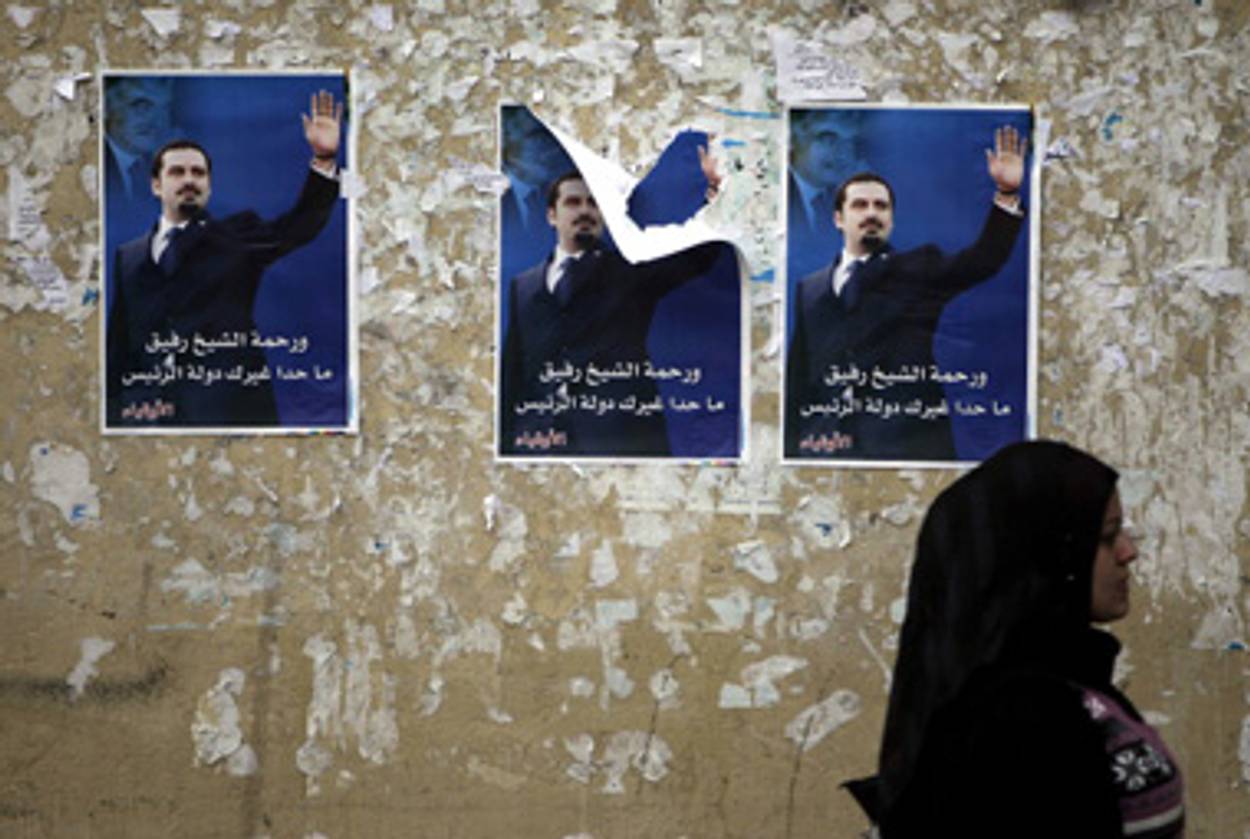U.N. Files Sealed Indictment in Lebanese Killing
Hezbollah grabs more power to Israel’s north




Yesterday, a U.N. prosecutor indicted suspects on a sealed list for the 2005 assassination of former Lebanese Prime Minister Rafik Hariri following a Security Council-backed investigation. President Obama praised the filing. It may be months before the suspects are formally revealed and a year before any trial is held, but ever since Hezbollah preemptively toppled the Lebanese government last week, with the president now delaying talks on a new coalition until regional players can meet and sort through the mess, who the suspects actually are seems secondary. (For what it’s worth, sources report that the indictments focus on Hezbollah operatives, but also include Grand Ayatollah Khamanei, Iran’s leader, who allegedly ordered Hariri’s murder.)
Hezbollah fears reprisals from the country’s Sunni minority as well as a blow to its reputation as patriotic for Lebanon if the indictments finger its own operatives for the killing of the Sunni former leader of the country—an operation originally thought to be sponsored by Syria but now believed to have been the doing of the Iran-sponsored indigenous Shiite group. Hezbollah broke with the (now on-his-way-out) prime minister, Saad Hariri, a U.S. ally—he was literally at the White House when Hezbollah made its move last week—after he refused to boycott the U.N. findings. As The New Yorker’s Lawrence Wright poignantly notes, Saad is Rafik’s son.
Tim Fitzsimons’s primer in Slate is highly recommended (as is Hanin Ghaddar’s companion essay, which makes plain just how greatly sectarianism dominates Lebanese politics and society). The actual unsealed indictments of Hezbollah operatives and officials may ignite further havoc. But in one sense, the damage has already been done: The government has disbanded; Hariri has denounced Hezbollah; Hezbollah’s leader, Hassan Nasrallah, defended his yanking of ten ministers from the government, blamed Hariri for “exposing” the country, and repeated his claim that the tribunal is (what else?) an American-Israeli conspiracy aimed at his group.
The next step, as Fitzsimons explains, is for Hariri’s group—the March 14 coalition—and Hezbollah’s group—March 8—to maneuver to form a new government, a scramble that will probably be decided by Druze leader Walid Jumblatt, who finds himself as the country’s de facto power broker (fans of The Wire should think of him as Prop Joe, the East Sider helping to becalm the West Side’s warring factions). Jumblatt will likely side with Hezbollah, but even if he doesn’t, or doesn’t right away, the writing is on the wall: In Lebanon, Hezbollah, Syria, Iran, and perhaps above all general instability are ascendant. “If there were hedging stakes involved,” writes Fitzsimons, “today would be a day to sell America and Saudi Arabia, and buy Iran and Syria.”
U.N. Formally Files Sealed Indictment in Killing of Former Lebanese Leader [WP]
Lebanon Delays Talks on New Government [NYT]
What’s Going On in Beirut? [Slate]
Is There No Place for People Like Me in Lebanon? [Slate]
Lebanon’s Tragic Hero [The New Yorker]
Related: The Next Lebanon War [Tablet Magazine]
Cinders of Lebanon [Tablet Magazine]
Earlier: What Is Hezbollah Thinking?
Hezbollah Departs Lebanese Government
Marc Tracy is a staff writer at The New Republic, and was previously a staff writer at Tablet. He tweets @marcatracy.